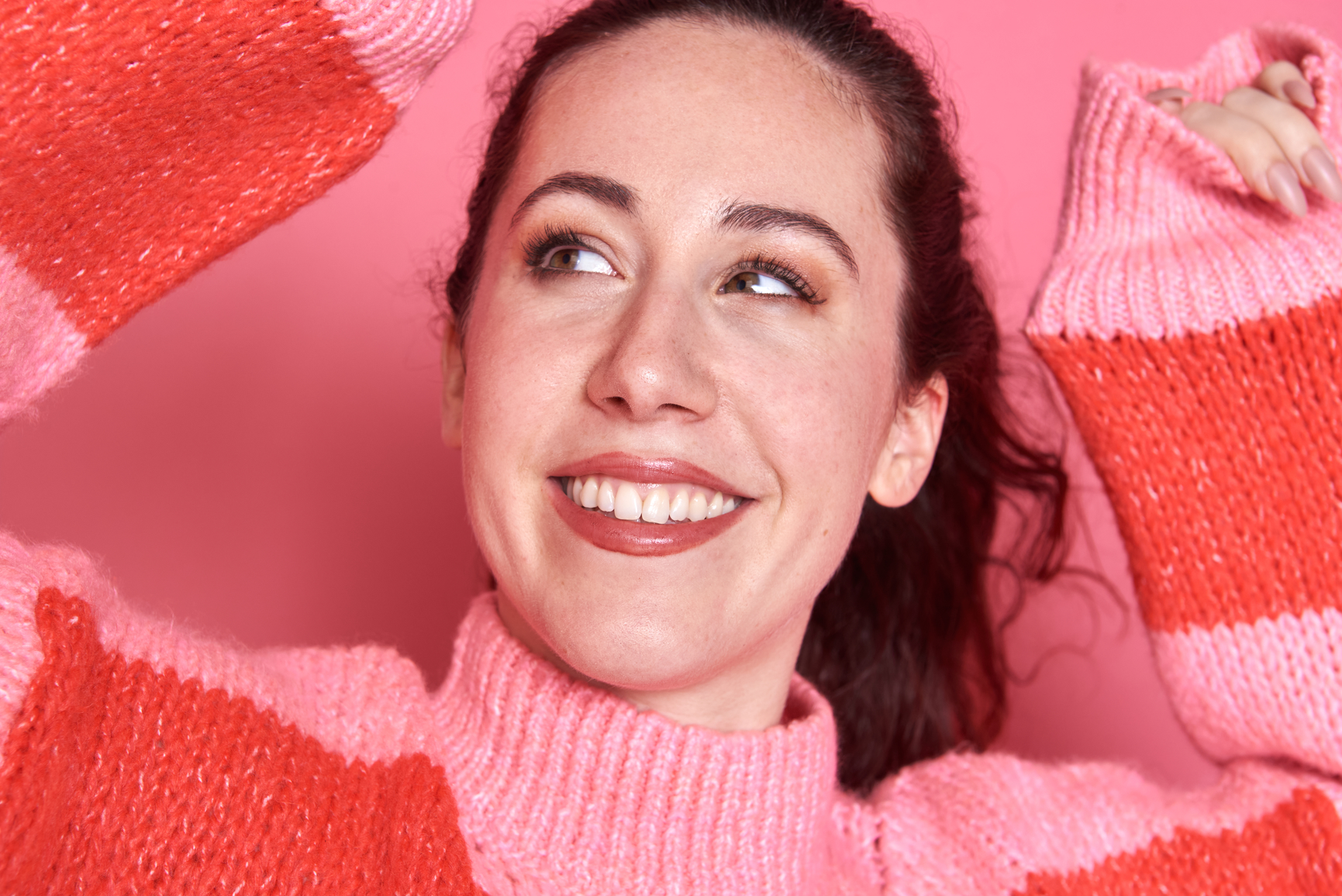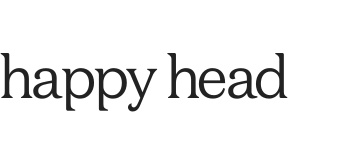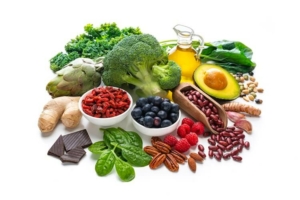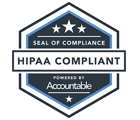The Breakdown of Collagen & Hair Growth

You’ve probably heard about collagen. Flip through a magazine or watch an ad for beauty products, and you’ll find a slew of references about collagen’s ability to improve the skin. Collagen works miracles for the skin, making it supple and elastic. But did you know collagen can also boost hair growth?
What Is Collagen?
To be clear, hair strands do not contain collagen. Hair is primarily composed of a protein called keratin, which is different from collagen. Keratin is a hard, fibrous protein that forms the structural building blocks of hair, nails, and the outer layer of the skin. (01)
Collagen, on the other hand, is a collection of proteins found in connective tissue like skin and cartilage. These proteins are so abundant that a third of all the protein in the human body is some type of collagen. Internal organs, skin, tendons, parts of our bones, lymph tissue, hair, and nails either contain or rely on collagen for their sturdiness and elasticity.
How Does Collagen Affect Hair Growth?
So while collagen is not a component of the hair shaft itself, it does contain the amino acids essential for keratin production. By providing the necessary building blocks for keratin, collagen is important for stronger and healthier hair. Simmer a pot of soup bones for a few hours, then let the contents cool. A gelatinous film would form on the top, which would consist primarily of collagen. It’s this collagen that gives bones, cartilage, and tendons their bounce and resilience. It’s also essential for healthy hair.
In addition, collagen also keeps hair follicles- which are responsible for producing new hair strands – healthy. Collagen ensures a robust scalp by promoting blood circulation, delivering oxygen and nutrients to the hair follicles. It’s collagen that helps ensure hair follicles have the ability to follow the natural growth cycle of hair.
Does Supplementing Collagen Help With Hair Growth?
Some studies suggest that collagen supplementation may have positive effects on hair health. In one particular study, participants experiencing a hair loss condition called telogen effluvium were administered collagen-focused nutritional supplements. These participants saw a marked improvement in hair density after 16 weeks of supplementation. (02, 03)
It’s important to note that individual responses to collagen supplements may vary. Factors such as overall diet, lifestyle, and underlying health conditions can influence the effectiveness of collagen supplementation for hair growth. In general, though, collagen supplements can ensure that the body obtains the collagen necessary to maintain and improve hair growth.
How to Add Collagen to Your Diet
Fortunately, you can add collagen to your diet by incorporating a variety of collagen-rich foods. You can also consume nutrients that assist your body in boosting its ability to manufacture collagen. The following are ways to change your diet to boost your collagen:
1. Eat Collagen-Containing Foods
One of the simplest ways to increase your collagen intake is by consuming foods naturally rich in this vital protein. Opt for collagen-rich sources such as bone broth, chicken, fish, and other lean meats. These foods provide amino acids necessary for collagen production, supporting hair growth and reducing hair loss.
2. Use Collagen Supplements
In conjunction with diet changes, you can also obtain more collagen through collagen supplements. Collagen supplements are available in various forms, including powders, capsules, and liquid formulas. They offer a convenient way to increase your collagen intake, promoting healthy hair growth. When choosing a supplement, opt for high-quality products that contain hydrolyzed collagen, as it’s better absorbed by the body.
3. Eat More Vitamin C
Vitamin C plays a significant role in collagen synthesis and absorption. Including vitamin C-rich foods in your diet can enhance collagen production, thereby benefiting your hair follicles and strands. Citrus fruits, strawberries, bell peppers, and leafy greens are excellent sources of vitamin C that can be easily incorporated into your meals.
4. Stock Up On Amino Acid-Rich Foods
If proteins like collagen were words, amino acids would be the letters that form the words. Amino acids help the body break down food, grow and repair tissue, and boost the immune system. They also help manufacture collagen. Consuming foods rich in amino acids can help you grow healthy hair. Include foods such as eggs, dairy products, legumes, and nuts in your diet to ensure an adequate intake of amino acids necessary for adequate hair growth. (04)
5. Go for Antioxidant-Rich Foods
Antioxidants are vital for protecting hair follicles from damage caused by free radicals. Therefore, incorporating antioxidant-rich foods can help maintain the health and integrity of your hair. Berries, dark chocolate, spinach, and green tea are excellent sources of antioxidants that can be included in your daily diet.
6. Work in the Omega-3 Fatty Acids
Omega-3 fatty acids play a vital role in maintaining the integrity of collagen fibers, thereby supporting healthy skin and hair. Furthermore, these Omega-3 fatty acids possess anti-inflammatory properties that can alleviate inflammation in the hair follicles and promote an ideal environment for hair growth. To support healthy hair growth, incorporate foods rich in omega-3 fatty acids, such as fatty fish (salmon, mackerel), walnuts, chia seeds, and flaxseeds. (05)
Eat a Balanced Diet
In addition to specific collagen-rich foods, it’s vital to maintain a well-balanced diet that provides essential nutrients for overall hair health. Include a variety of fruits, vegetables, whole grains, lean proteins, and healthy fats in your meals. A balanced diet ensures that your body receives the necessary nutrients to support collagen production and maintain healthy hair.
While hair loss can be influenced by various factors, incorporating collagen into your diet can be a beneficial strategy to support healthy hair growth and combat hair loss. By consuming collagen-rich foods, taking collagen supplements, and ensuring an adequate intake of necessary nutrients, you can enhance collagen synthesis in your body, promote hair strength, and improve the overall health of your hair.
Gelatin Versus Collagen
When it comes to promoting hair growth, gelatin and collagen supplements are often considered as potential solutions. While both substances come from animal sources and have similarities, there are some key differences in their composition and affect on hair health.
Gelatin contains collagen, but it is not the same. Gelatin’s a protein-rich substance obtained by boiling animal tissues, such as bones and skin. It contains high amounts of collagen, which is the main structural protein found in the connective tissues of animals.
In terms of hair growth, both gelatin and collagen supplements can provide essential amino acids, such as proline, glycine, and hydroxyproline, which are crucial for the production of keratin—the protein that forms the structure of hair. These amino acids play a vital role in maintaining healthy hair follicles and promoting hair growth.
One notable difference between gelatin and collagen supplements lies in their preparation and usage. Gelatin is commonly used in cooking and food preparation, as it solidifies when cooled and adds thickness and texture to various dishes. It can be consumed in the form of desserts, gummies, or added to soups and stews.
Collagen supplements, on the other hand, are available in powder or capsule form and are primarily intended for nutritional supplementation. These supplements generally offer a higher concentration of collagen protein compared to gelatin. This increased potency may provide more substantial benefits for hair growth. Collagen supplements are also typically more refined and undergo processing that results in a higher bioavailability, meaning the body can use it more readily than gelatin.
Nutrients for Your Hair by Happy Head
You can’t go wrong by consuming a varied, healthy diet. However, it doesn’t hurt to bolster that diet with nutritional supplementation. Happy Head’s Hair Growth Supplements are formulated by our team of experts for optimal hair growth. Each supplement holds essential microbiomes, vitamins, and minerals to boost collagen production. Our supplements also contain both keratin and collagen to fight thinning hair and prevent shedding. Want more collagen? Let Happy Head help!
Resources:
(01) https://www.ncbi.nlm.nih.gov/pmc/articles/PMC4201279/
(02) https://www.ncbi.nlm.nih.gov/pmc/articles/PMC9069902/
(03) https://www.ncbi.nlm.nih.gov/pmc/articles/PMC8620403/
(04) https://medlineplus.gov/ency/article/002222.htm
(05) https://pubmed.ncbi.nlm.nih.gov/25573272/



